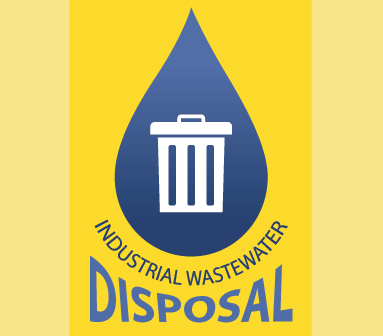We use cookies to make your experience better. To comply with the new e-Privacy directive, we need to ask for your consent to set the cookies. Learn more.
Why Wastewater Disposal Is An Essential Part of Forklift Battery Maintenance
To keep your forklift batteries running efficiently, you have to wash them periodically. But maintenance procedures don't stop there — you must also make provisions to safely dispose of runoff from the washing process. Failing to do so could subject your business to massive EPA fines, or even land you in jail.
Facility managers who are new to electric equipment sometimes overlook this crucial final step to the peril of the entire operation, as well as the municipal groundwater. If you're not sure what to do with your industrial wastewater, it’s time to make a plan. You have two basic options: 
1. Outsourcing Your Wastewater Disposal Needs
You can hire a 3rd party wastewater disposal contractor. These companies cart away your battery wash runoff and treat the waste until it meets federal and local standards for safe disposal. Your forklift battery provider might even provide this service as part of an overall maintenance program. This is a great choice for companies that don't have their own onsite water treatment equipment.
Note that forklift battery wash water can be designated as hazardous waste under the Resource Conservation and Recovery Act. Subtitle C of this law created an extensive federal program to track the generation, transportation, treatment and disposal of hazardous wastes under the auspices of the EPA.
Choose a service provider that designates itself as the sole generator of the byproducts of washing batteries. While battery users and visiting technicians are both considered co-generators under the RCRA, the EPA has stated in the Federal Register that the Agency will “be satisfied if one of the...parties assumes and performs the duties of generator on behalf of all the parties. In fact, the Agency prefers and encourages such action…”
As long as service providers take the role of sole generator, then, battery owners are not responsible for the fate of wastewater created while washing batteries.
2. Installing an On-Site Wastewater Recycling System
The second option is to process battery wash water runoff on-site, with your own staff. This method will save you the cost of outsourcing waste disposal. If you regularly wash large fleets of batteries, it might be worth it to invest in your own in-house treatment system.
Wastewater Recycling Systems (WRS) from BHS collect your contaminated water and treat it for reuse or totally safe, EPA-compliant disposal. You can even use mobile tanks to treat water from multiple locations. Each purchase of a new WRS includes exhaustive testing and legal research to ensure that your wastewater will emerge ready for reuse or the sewer.
No matter how you decide to handle the runoff from washing your forklift batteries, you must take steps to keep it out of the water supply until you can clean it thoroughly. Both responsible outside service providers and in-house Wastewater Recycling Systems provide full compliance with EPA regulations; the choice will come down to individual operational differences.
Resources:
“Hazardous Waste Management System: Identification and Listing of Hazardous Waste, and Interim Status Standards for Owners and Operators of Treatment, Storage, and Disposal Facilities; Final, Interim, and Proposed Regulations.” 45 Fed. Reg 212 (30 Oct. 1980.) Federal Register: The Daily Journal of the United States. Web. 23 Nov. 2016.
“Hazardous Waste - RCRA Subtitle C.” EPA. U.S. Environmental Protection Agency, n.d. Web. 26 Oct. 2015.
Lagana, Kelly. “7 RCRA Violations That Will Send You to Jail.” envirodailyadvisor. BLR, 3 August 2012. Web. 26 Oct. 2015.
Solid Waste Disposal Act. Subt. C - Hazardous Waste Management. PDF. 26 Oct 2015.
